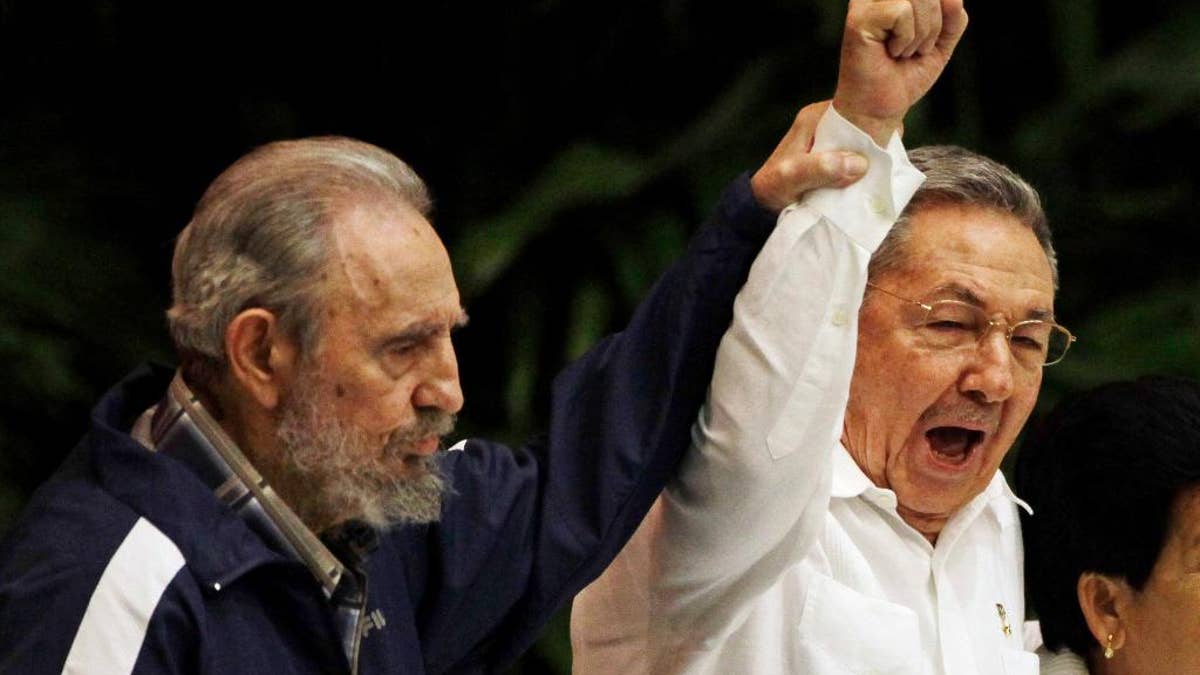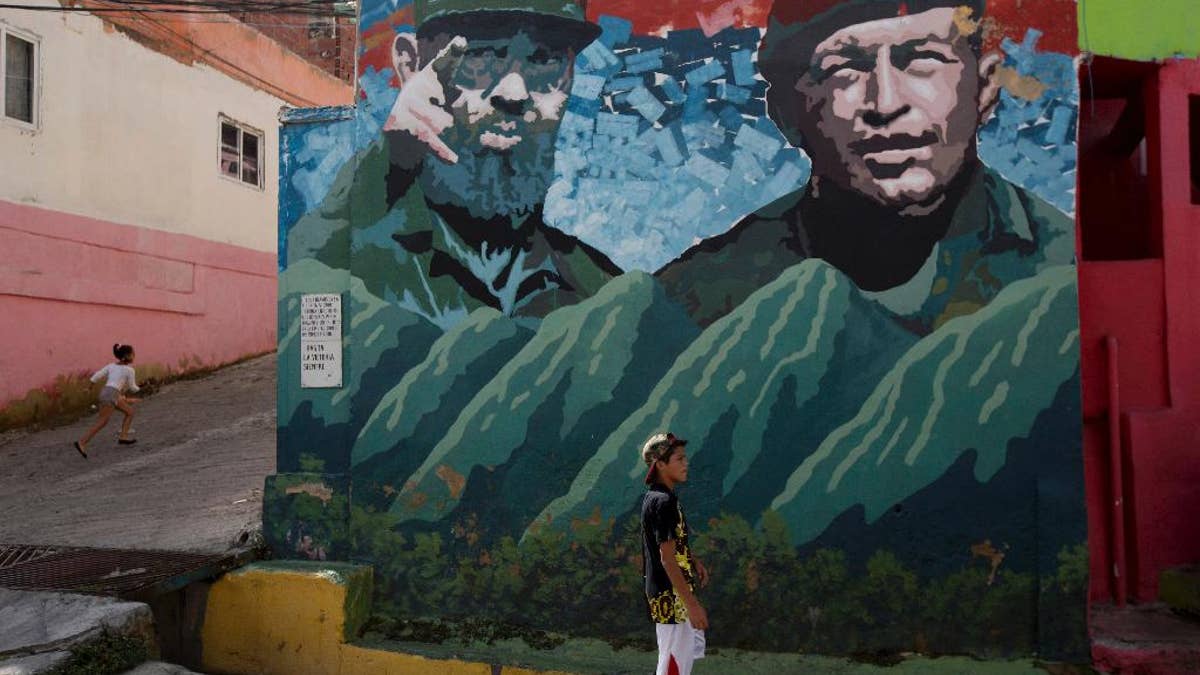When Fidel Castro and his rebel army marched into Havana in the early days of January 1959 Dwight D. Eisenhower was president of the United States. At the time of the Cuban strongman’s death on Friday, Donald Trump is preparing his move into the White House.
The 57 years in between Castro seizing power in Cuba and his death were filled with turbulent moments between Havana and Washington – from the Cuban Missile Crisis and the Bay of Pigs to the Mariel boatlift and Elian Gonzalez – but his passing will do little to change the current thaw in relations between the two Cold War-era foes that has sped up in the last few years, experts say.

Fidel Castro, left, raises his brother's hand, Cuba's President Raul Castro, center, as they sing the anthem of international socialism in Havana, Cuba. (AP)
“With [Fidel Castro] gone there is less resistance to opening up to Cuba,” Jason Marczak, director of the Latin America Economic Growth Initiative at the Atlantic Council's Adrienne Arsht Latin America Center, told FoxNews.com. “It’s a real blessing in disguise for those in Cuba and the U.S. who want to see the opening in relations between the two countries continue.”
While Castro still remains a potent symbol of anti-imperialism and a figurehead for the Latin American left, his ironclad grip on Cuban affairs had in the last few years dissipated tremendously since he formally handed over power to his younger brother, Raul, in 2008 amid failing health.
As his health continued to decline over the last decade, Castro had less and less say in the ruling of the country as Raul Castro began to steer the once hardline communist nation toward more free market economic policies and eased the long-standing tension between Cuba and the U.S.
It is well known that the elder Castro disliked a number of his brother’s polices and moves – especially President Obama’s visit to the island earlier this year – and some experts believe - now that his brother is dead - Raul Castro will push for even more changes both internally and with the U.S.
“Castro inhibited Raul from making many reforms and moving forward,” Elizabeth Newhouse, the director of the Center for International Policy’s Cuba Project, told FoxNews.com. “His passing may embolden Raul to move a little faster. Maybe he’ll take advantage of this and speed up changes before he himself retires in 2018.”
JUDY MILLER: EVEN WITH CASTRO GONE, CUBA'S FUTURE IS IN DOUBT
The death of Fidel Castro certainly marks a sea change in terms U.S.-Cuban relations, but analysts say the bigger question is less what Cuba will do now and more about what will become of the thaw when President-elect Trump takes office in January.
On the campaign trail, Trump flip-flopped on his stance toward U.S.-Cuban relations – at times speaking out against the decades-long embargo imposed on the island and at other times preaching that it must be upheld – and his response to Castro’s death was both damning and hopeful.
“Fidel Castro’s legacy is one of firing squads, theft, unimaginable suffering, poverty and the denial of fundamental human rights,” Trump said in a statement on Saturday. "While Cuba remains a totalitarian island, it is my hope that today marks a move away from the horrors endured for too long, and toward a future in which the wonderful Cuban people finally live in the freedom they so richly deserve.”
Given that Castro was such a polarizing figure within the Cuban-American community, his death could take away much of the drive for a harsher rhetoric from Washington toward Havana.

Boys play near a graffiti of Fidel Castro and Hugo Chavez in Caracas, Venezuela (AP)
“Fidel Castro was a symbol of the people’s animus,” Christopher Sabatini, a professor at Columbia University’s School of International and Public Affairs, told FoxNews.com. “A lot of the momentum to roll back these changes will slow down. It takes a lot of wind out the sails.”
Sabatini added that even if Trump tried to roll back the progress made by the Obama administration, he would face a severe backlash from a number of businesses that stand to benefit from the renewed relations between the country, including major airlines and the travel and tourism industry.
“Trump has not said that he is opposed to the thaw in relations,” Sabatini said. “He’s a businessman and he has said that the just wants a better deal.”
Castro’s death may have been celebrated on the streets of Miami and other Cuban-American enclaves across the country, but the late Latin American strongman in being mourned in other parts of the region.
For members of Latin America’s revolutionary leftwing, the death of Castro leaves a void that he had almost singlehandedly filled for over five decades. As leftist leaders in places like Venezuela, Bolivia and Ecuador battle struggling economies, civil unrest and regional shift toward conservatism, they have no one to look to anymore for guidance.
“That iconic revolutionary figure is gone,” Sabatini said. “While the appeal of this type of leader may not be gone, there is no one to inherit Castro’s mantle.”
